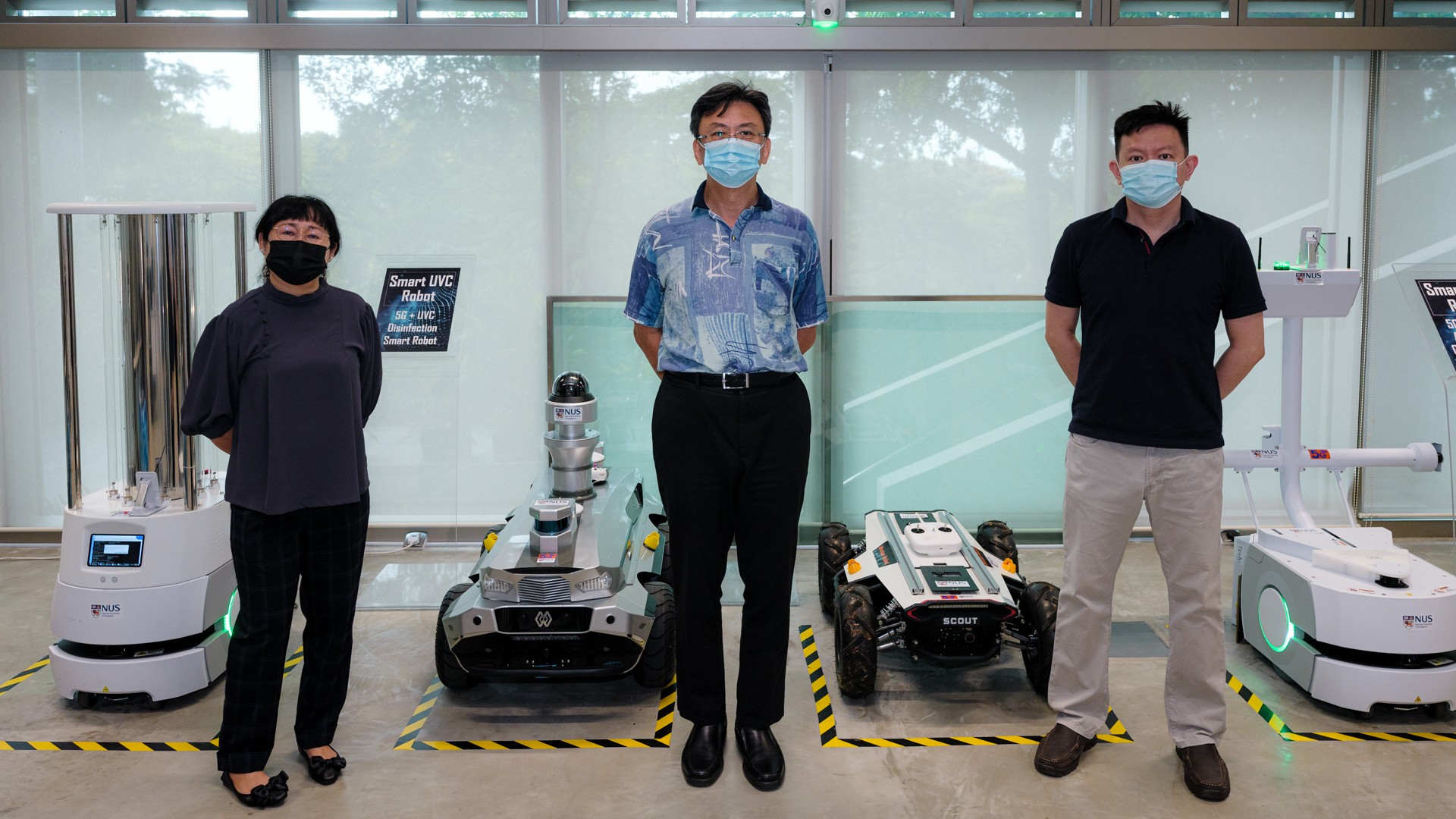In a boost to Singapore's future-built environment landscape, the National University of Singapore (NUS) Department of the Built Environment has established a new research centre to augment the digital capability of Singapore's construction industry, accelerate 5G training and promote the adoption of 5G technologies in Smart Facilities Management (FM).
The Centre for 5G Digital Building Technology aims to play an important role in Singapore's digital research transformation as the nation pushes to offer nation-wide 5G coverage by 2025. Specifically, it has set its sights to be a leading centre in digital building technology through high impact research, broad-based education, and implementing best practices. It will harness 5G connectivity, cloud-based digital twin and robotics for Smart FM and Built Environment industry applications and seek to transform the way people design, deliver and manage Singapore's built environment.
The Centre's 5G-enabled cloud-based digital twin platform for Smart FM integrates systems, processes, and technologies to enhance the management of a building's facilities. A successful implementation of Smart FM will help to increase productivity and efficiency, and also improve the general health and well-being of the occupants within the buildings. Digital building technology innovations will also provide a boost to the construction sector, as it results in cost reductions, higher quality of work, improved safety and better performance of facilities.
"In this rapidly changing world, the built environment sector is confronted with unprecedented challenges to continuously evolve. In particular, the COVID-19 pandemic has radically changed the way we work and greatly accelerated the adoption of digital technology. Our new Centre for 5G Digital Building Technology will be a living laboratory where we can lead and test-bed innovative digital solutions to create healthier and smarter buildings. At the same time, it is a good learning ground for our students to be exposed to real-world scenarios and tools, where we can better nurture them into leaders of our smarter built environment," said Professor Lam Khee Poh, Dean of the NUS School of Design and Environment (SDE).
5G living laboratory in net-zero energy building
Housed at SDE4, the 5G Centre is uniquely positioned at Singapore's first new-built net-zero energy building. This allows its researchers the ability to test and develop 5G digital technologies, which typically consumes a high amount of energy, within a net-zero energy environment. This is significant as more businesses will increasingly adopt 5G technology along with the nation-wide coverage by 2025, and buildings are expected to be more energy-efficient by 2030 to mitigate climate change.
Helmed by Associate Professor Evelyn Teo, the 5G Centre will focus on the following:
- Develop high-impact research that advances the boundaries of 5G digital building technologies and test-bed new solutions
- Develop best practices, case studies and guidelines
- Develop new executive training programmes, workshops and seminars for industry workforce enhancement
- Collaborate with industry stakeholders to enable more effective adoption of 5G digital building technologies.
Centre Director Associate Professor Teo said, "Our Centre's unique position within a net-zero energy building not only allows us to power 5G sustainably but also allows us to study and create new digital and innovative solutions in Built Environment and Smart FM which will translate into smarter systems that are more energy efficient and thereby reduce carbon emissions in the long-run."
Spearheading innovative 5G solutions for Built Environment
The 5G Centre has kicked off a partnership with 12 organisations to collaborate in digital building technology. A Memorandum of Understanding (MOU) was signed in November with Singapore Land Authority, M1 Limited, Techmetics Solutions Pte Ltd, CBM Pte Ltd, Glodon International Pte Ltd, Nokia Solutions and Networks Singapore Pte Ltd, Hikvision Singapore Pte Ltd, Globotix Pte Ltd, Weston Robot Pte Ltd, VIRspatial Technologies Pte Ltd, Mind Pointeye Pte Ltd and Servo Dynamics Pte Ltd.
While organisations have started test-bedding isolated technologies, this partnership has enabled the Centre to effectively combine separate digital technologies into one integrated digital twin platform via 5G connectivity such that data can flow seamlessly through the cloud. Some exciting applications range from targeted disinfection, vertical façade cleaning robot, intelligent waste monitoring and collection, to building inspection drones to check for leaks and cracks.
5G Research Thrust Leader, Assistant Professor Shah Kwok Wei, said, "One of the applications which the Centre has embarked on is to use 5G digital twin platform to virtually replicate physical buildings to enable facility management specialists to better visualise, manage and control their property assets in real-time. The Centre has created a 3D virtual operating system of systems by complementing 5G cloud-based digital twin platform with Internet of Things (IoT) sensors, and advanced robotics to enhance maintenance processes."
The COVID-19 pandemic has also brought to the fore safety and hygiene issues, in particular of indoor spaces. Using digital twin, smart CCTVs and video analytics, the Centre is developing an application to effectively clean and disinfect high-risk and high-touch points.
The Centre is collaborating with CBM Pte Ltd to deploy some of these digital solutions for its customers. CBM CEO Mr Roy Chiang said, "These novel applications from the Centre for 5G Digital Building Technology which enable detection and tracking human positions will allow us to clean and disinfect in a more targeted and effective manner using 5G cloud-based 3D digital twin properties integrated with robotics, IoT, AR and VR."
Training on 5G built environment applications
The 5G Centre is also supported by SkillsFuture Singapore. It will provide students and industry professionals hands-on opportunities to apply digital building technologies for 5G use case demonstrations. Equipped with video walls, holographic displays, AR and VR technologies, the Centre will bring concepts to life with immersive learning experience in a safe training environment under real-time supervision and remote guidance.










